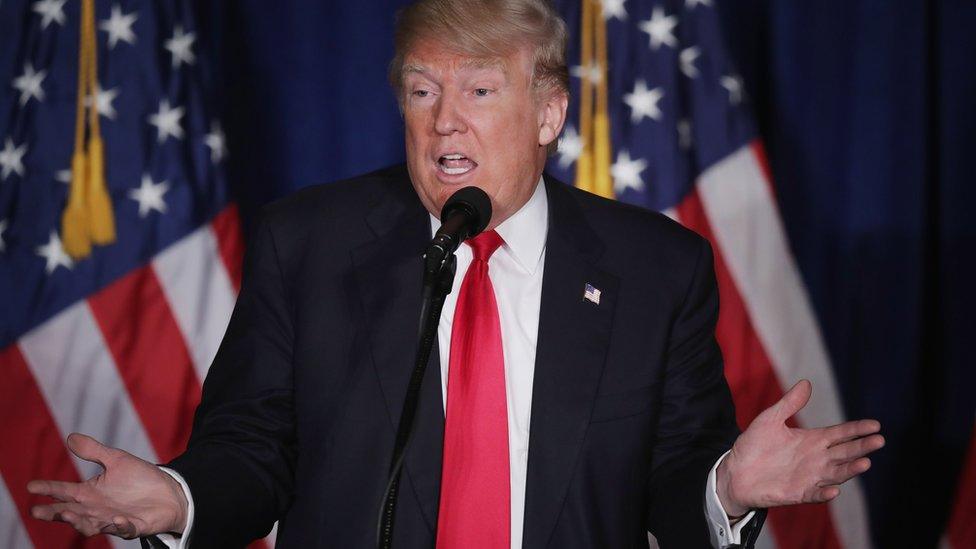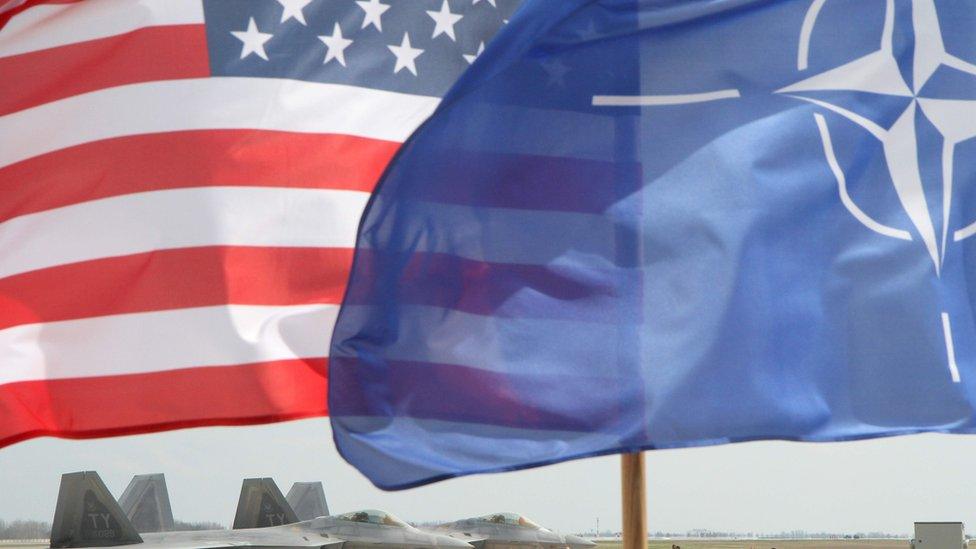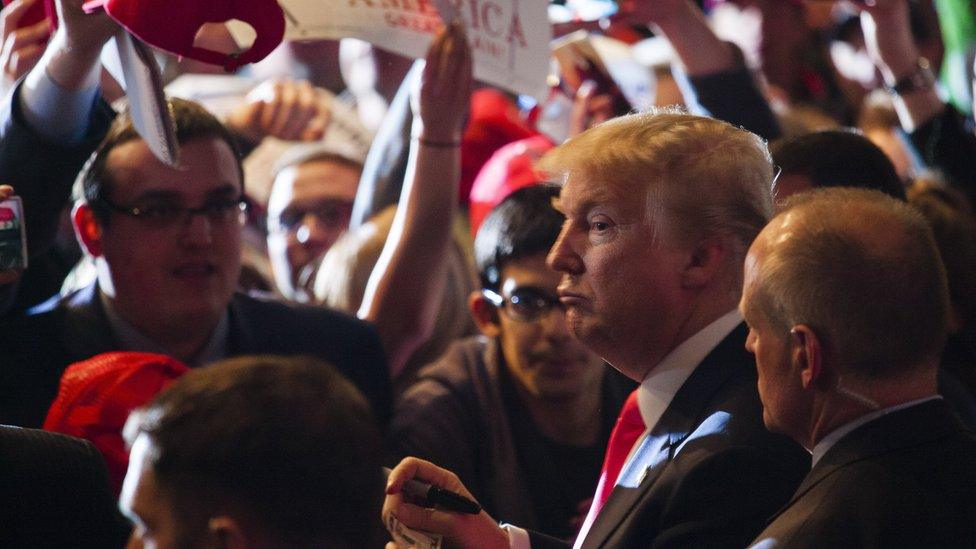Trump now has a doctrine but still no details
- Published

Mr Trump has said he considers himself the "presumptive nominee" of the Republican Party
Massachusetts Avenue in Washington is one of the grand boulevards of the city.
North of Dupont Circle it is where a large number of the foreign embassies are clustered: the British, Italian, Japanese, Brazilian, South African, Mexican to name but a few. South of Dupont Circle is where a lot of the big, well-funded foreign policy think-tanks are housed. In my mind, I have a picture of the mandarins and panjandrums of this rarefied world listening to Donald Trump: wincing occasionally, tutting every now and then, a bit of head-shaking, a good deal of concern.
And if I am correct in this surmise, my guess is that Trump would not give a damn. These people, through the telegrams they will despatch back to their foreign ministries and through learned articles that will be published in worthy magazines, are not his audience. Yet. Maybe if we do get a Trump administration, a phrase he used repeatedly in his speech in a smallish ballroom at the Mayflower Hotel, then that will undoubtedly change. But for the moment, the only audience he cares about is the Americans watching at home.
So what did it add up to? Well, let me pose this question: what has been the standout policy of Trump thus far in his extraordinary bid for the Republican nomination? Surely it has to be Mexico and building the wall to halt the flow of illegal immigrants heading across the Rio Grande. Well, there was mention of the wall. But only the Ronald Reagan quote aimed at Mr Gorbachev about tearing down the Berlin Wall. There was no mention of Mexico, Mexicans, building a wall, and getting the Mexicans to pay for it. Nothing. Zero. Zilch.
Maybe if you're trying to be philosophical and reflective, there is no space for that sort of pantomime rhetoric that has become a staple of his campaign stops
"What are we going to build?"
"We're going to build a wall"
"And who's gonna pay for it?"
"Mexico"

More on the Republican race
Who are the women who support Trump?


Mr Trump has said the US should scale back its involvement in NATO
But there were things that you would recognise from Trump 1.0: first, this swipe at the current administration: "Our foreign policy is a complete and total disaster. No vision, no purpose, no direction, no strategy."
So let's deal with the vision. First of all, his foreign policy would put the interests of the American people, and American security, above all else. So far so uncontroversial: which candidate is going to say he is not going to put the interests of the American people first?
He also had a good poke at Nato, saying - essentially - the free ride is over, everyone must pay their share, only four of the 28 members are paying the 2% of their national wealth on defence that was agreed as the baseline a couple of years back. But I have just returned from Europe with President Obama, and in a speech in Hanover he said more or less the same thing.
He reiterated that Iran must not be allowed to obtain a nuclear weapon, spoke up for Israel, he wants America's service men and women to have the best equipment and treated well when these veterans return. Again: who is going to argue with that?

Mr Trump has a vision - but lacks a plan to see it through
So don't look at this speech and think it is ALL outside the foreign policy consensus.
Of course there were rhetorical flourishes, and there will have been things outlined where, I'm sure, grizzled and gnarled foreign policy veterans would be saying 'good luck with that, mate' - notably his assertion that he wanted an end to the hostility with Russia, easing of tensions with China, that he wanted to be friends with them.
He also said the era of American 'nation-building' around the world was over. But wouldn't Barack Obama say the same thing?
What is different is that Donald Trump would be more pre-disposed towards isolationism than his recent predecessors. He is suspicious of multi-national institutions, doesn't like big trade deals that lead to a loss of American jobs. The world, he promises, will be viewed through the clear prism of American interests
The charge has been made that Donald Trump is temperamentally unfit to be commander-in-chief. Today he sought to explain why he was not only fit, but had a vision too. The vision was clear….but how he'd make that a reality - well, that wasn't quite so clear.
Which leaves an impression that Trump's foreign policy has a lot of "what" but is desperately short of "how".